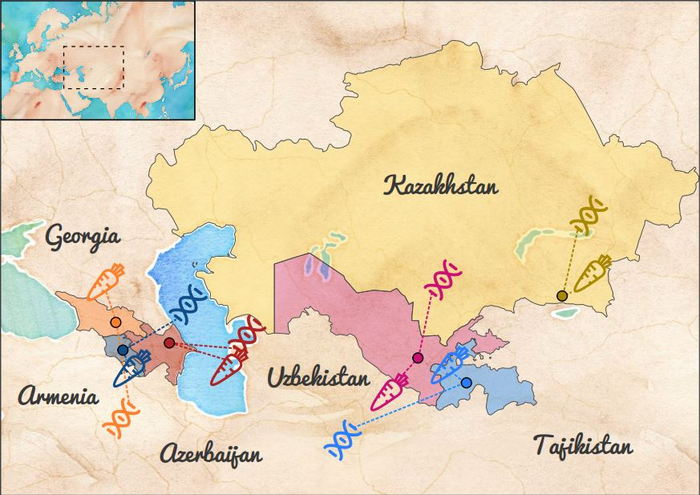Genetic studies of the past 20 years have extensively shown how, across human populations worldwide, the majority of genetic differences are encountered at the individual rather than at the population level. Two random humans from a single group tend indeed to be more genetically different from each other than two different human populations on average.

Credit: Serena Aneli
Genetic studies of the past 20 years have extensively shown how, across human populations worldwide, the majority of genetic differences are encountered at the individual rather than at the population level. Two random humans from a single group tend indeed to be more genetically different from each other than two different human populations on average.
Does this hold also when it comes to lifestyle and culture?
In a recently published article on PNAS from the Universities of Tartu, Turin, Trieste and Padova, the authors investigated the matter by taking dietary choices as a proxy for that and by examining food preferences over 79 different foods within six populations along the historical Silk Road route, spanning across the whole of Central Asia.
“We found that preference for certain foods was informative of the preference of other foods, or that, in other words, the food likings could be combined to assemble a discrete number of ‘food signatures’ ” said Prof. Luca Pagani, senior author of the study.
Strikingly, these signatures or profiles were not typical of a given village or country. The food signatures hence identified were instead linked with other features of the queried individuals such as age, biological sex and other cultural choices. Nevertheless, some exceptions were represented by certain foods available only in specific countries. Among them, some typical products from regional cuisines stand out, such as the Georgian brined cheese “sulguni” and “kurut”, dried yogurt balls from Central Asian nomads.
The amount of dietary information that the researchers could link to the country of origin was as little as 20%, which is big if compared with its genetic counterpart (1%) but still not sufficient to explain the observed patterns, despite the thousands of kilometers separating the investigated individuals.
As differences in genetic makeup and food preference between countries could be translated into “genetic” and “food” distances, these were plotted on a geographic map for comparison with the actual geographic distances between sampling locations. The emerging map showed culture to be only slightly more comparable to geography than genetics for the analysed groups (Figure 1), consistently with what emerged from the rest of the results.
“No matter where you live or where you were born, it turns out that your choices (at least as far as food consumption is concerned) are more dependent on your sex and age and on other cultural features” concluded Dr. Serena Aneli, the first author of the study.
Journal
Proceedings of the National Academy of Sciences
DOI
10.1073/pnas.2209311119
Method of Research
Data/statistical analysis
Subject of Research
People
Article Title
Impact of cultural and genetic structure on food choices along the Silk Road
Article Publication Date
14-Nov-2022
COI Statement
No conflict of interest to disclose




